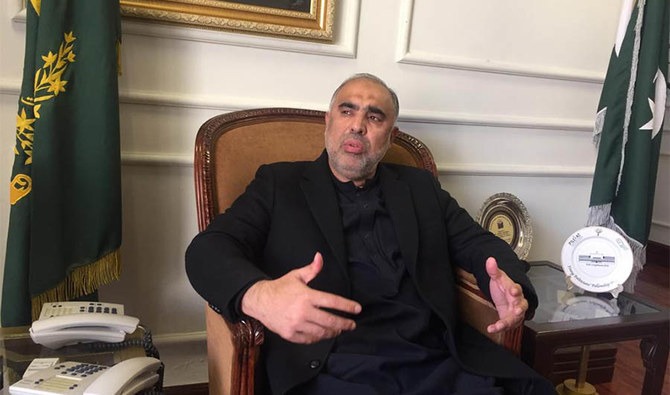PTI Leader Accuses PPP of Political Deal-Making
Senior Pakistan Tehreek-e-Insaf (PTI) leader Asad Qaiser has accused the Pakistan People’s Party (PPP) of engaging in political bargaining over the proposed 27th Constitutional Amendment, claiming the party is prioritizing political gains over constitutional principles.
Speaking to journalists outside the High Court, where he had filed a petition seeking details of ongoing legal cases, Qaiser alleged that the PPP was trapped in a cycle of give-and-take instead of defending the Constitution. He urged the party’s leadership to reject the proposed amendment outright, describing it as inconsistent with democratic norms.
Praise for Bhutto Family’s Democratic Legacy
Despite his criticism, Asad Qaiser acknowledged the historical role of the Bhutto family in strengthening democracy in Pakistan. He praised former Prime Minister Zulfikar Ali Bhutto for gifting the nation the 1973 Constitution, which he called a landmark in Pakistan’s political history.
Qaiser also mentioned that Benazir Bhutto, the country’s first female prime minister, had made significant sacrifices for democratic values. He emphasized that the PPP, as the political heir of such a legacy, should take a firm stand to safeguard constitutional principles rather than compromise for political expediency.
PPP Should Reclaim Its Democratic Identity
The PTI leader suggested that if the PPP took a clear and principled stance on the amendment, it could mark the party’s return to practical politics and help restore its credibility among the public. He claimed that any perceived deal-making would further erode public trust in the political process and in the opposition’s role as a democratic watchdog.
Political analysts note that disagreements over constitutional amendments often reflect broader tensions between parties regarding provincial autonomy, judicial reforms, and electoral transparency—issues that remain central to Pakistan’s ongoing governance challenges.
Concerns over Judiciary’s Independence
Turning to the judiciary, Qaiser voiced concern over what he described as executive interference in judicial matters. He said that the administration’s influence was undermining the credibility and independence of the courts, warning that the rule of law could not be preserved if such trends continued.
He criticized the non-implementation of a three-member bench’s decision, calling it a serious question mark over judicial authority. According to Qaiser, The judiciary will not be truly independent until judges themselves stand up to protect it.
Condemnation of Police Raids and Political Intimidation
Asad Qaiser also condemned a recent police raid on the Khyber Pakhtunkhwa House, labeling it an act of political hostility. He argued that targeting constitutionally protected spaces damages federal harmony and deepens divisions between the provinces and the central government.
Furthermore, he expressed solidarity with political leader Hamid Raza, lauding his contributions to democracy and the rule of law. Qaiser denounced the cases filed against Raza and urged the judiciary to expedite hearings to ensure fair and timely justice.
A Call for Democratic Accountability
Qaiser’s remarks reflect the PTI’s growing criticism of what it sees as political compromises and weakening democratic institutions under the current setup. As Pakistan continues to grapple with political polarization, his comments underscore a broader demand for transparent governance, judicial independence, and adherence to constitutional principles — values that remain central to the country’s fragile democratic framework.















